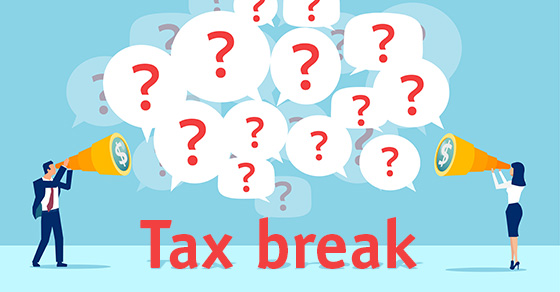On Friday, March 27, President Trump signed a historic stimulus bill: the Coronavirus Aid, Relief, and Economic Security (CARES) Act. This legislation’s many provisions provide emergency relief for those suffering financial hardships due to COVID-19 including individuals, businesses, state and local governments, and the health care system. The CARES Act is in addition to the Families First Coronavirus Response Act (FFCRA) which President Trump signed into law on March 18. FFCRA makes substantial changes to sick and family and medical leave for businesses and employees amid the emerging COVID-19 pandemic.
The following article is a high-level overview of the tax credits available under the CARES and FFCRA Acts.
Business Tax Relief
The following highlights some of the most important business tax provisions found in the CARES Act. These changes can help businesses reduce future taxes and claim deductions in 2019 as well as previous years. It may be advantageous for some businesses to consider adjusting their 2019 tax return or amend previously filed returns. Please contact your CPA to discuss whether any of these options are advantageous to your business.
The Employee Retention Payroll Tax Credit is available to employers whose operations were fully or partially suspended as a result of a government order due to COVID-19. Nonprofit organizations are eligible to take advantage of this credit. Employers taking advantage of the small business interruption loans are not eligible for this tax credit. This credit is equal to fifty percent of qualified wages against quarterly employment taxes, to offset up to $10,000 of wages paid per employee for wages paid after March 12, 2020, and before January 1, 2021.
The Paycheck Protection Program will cover payroll costs (up to $100,000) for compensation including continuation of group health care benefits, employee salaries, and commissions. It also covers mortgage payments, rent utilities, and interest on debt obligations incurred before the covered period. Eligibility is extended to companies with 500 employees or less, nonprofits, veterans’ organizations, tribal small businesses, sole-proprietors, independent contractors, and self-employed individuals. Loan forgiveness is available (up to the principal amount) but will be reduced for employers who lay-off workers or reduce employee compensation.
Delay of Employment Tax Payments allows employers to defer payment, of the employer share, of the social security tax on wages through December 31, 2020. The deferred tax payments are due by 12/31/21 and the remainder is due by 12/31/22.
Net Operating Loss/Excess Business Loss Changes – The CARES Act amends a provision in the Tax Cuts and Jobs Act (TCJA) that limited net operating loss deductions to 80%. Under the CARES Act, net operating losses incurred are fully deductible. Businesses can claim refunds of taxes paid in prior years, contact your CPA to discuss carry back options.
The Business Interest Deduction limit has increased the deductibility of business interest from thirty percent of taxable income to fifty percent.
Qualified Improvement Property – A correction to the 2017 TCJA that allows the one hundred percent bonus depreciation deduction for “qualified improvement property”, which includes qualified leasehold and retail improvement property, and qualified restaurant property. Taxpayers are allowed to retroactively apply this correction to tax years starting in 2018.
SBA Programs: The programs below are covered in an earlier post. For more information visit: SBA Providing Disaster Assistance Loans to Qualified Small Businesses and SBA Loans Instructions and Tips.
- Economic Injury Disaster Loans
- SBA Payroll Protection Program
- SBA Express Bridge Loan
- SBA Regular 7(a) Loan Program
The Families First Coronavirus Response Act (FFCRA)
There are two ways employers can aid employees: Emergency paid sick leave [COVID-PSL] and extended family medical leave [EFMLA].
If employers make COVID-PSL and EFMLA payments to employees, they are able to offset those payments through tax breaks. The payroll tax credits can be claimed by employers offering qualifying leave between the effective date of the Act and December 31, 2020.
We have covered both of these options in an earlier post. For more information visit: FAQ – Adjustments to FMLA and Paid Sick Leave in Response to COVID-19.
Individual Tax Relief
- Tax credit recovery rebates of up to $1,200 for singles, $1,200 for heads of households, and $2,400 for married couples filing jointly. Additionally, families with children under 17 will also receive an additional $500 per qualifying child. If you earn more than $75,000 a year, payments will phase out and those earning $99,000 would not be eligible. Phase-out numbers double for married couples.
- Penalty-free withdrawals from qualified retirement plan funds up to $100,000 between January 1, 2020 and December 31, 2020. The 10% penalty on early distributions from qualified retirement plans, including IRAs and 401(k)s will be waived.
- A temporary waiver of required minimum distributions from a retirement plan or IRA for calendar year 2020.
- Expansion of unemployment benefits
- In addition to state aid, unemployed workers will receive an additional $600/week.
- Self-employed workers and independent contractors will be eligible.
- Typically running out after 6 months, unemployment benefits will be extended for an additional 13 weeks.


